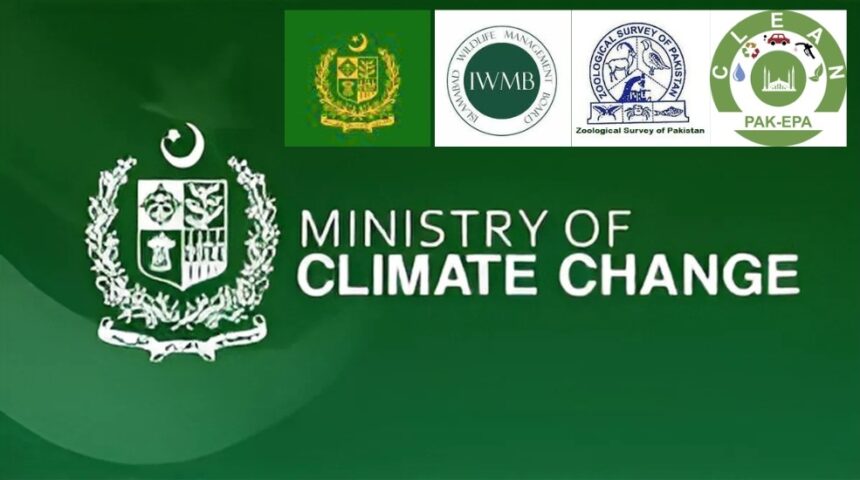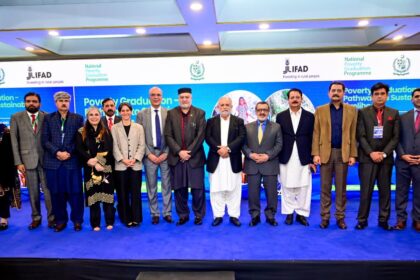**Pakistan Considers Radical Overhaul of Environmental Bodies in Sweeping Government Restructuring Proposal**
A confidential draft proposal from Pakistan’s Ministry of Climate Change outlines plans for a major restructuring of the country’s environmental governance, recommending the closure or merger of key agencies including the Pakistan Environmental Protection Agency (Pak-EPA), the Islamabad Wildlife Management Board (IWMB), the Zoological Survey of Pakistan (ZSP), and potentially the Pakistan Climate Change Authority (PCCA). The wide-ranging reforms aim to cut government size, eliminate duplicative roles, and shift the Ministry’s focus toward international climate finance and diplomacy.
The proposal is part of a broader “rightsizing” initiative directed by the Prime Minister, targeting over 65 public sector organizations for consolidation, closure, or absorption. According to the draft, the recently established Pakistan Climate Change Authority, tasked with steering national climate policy and accessing global climate finance, is earmarked for complete merger into the Ministry of Climate Change. The Ministry argues that Pakistan’s minimal share in global emissions does not justify maintaining a standalone authority, and instead suggests retaining only a small, highly qualified team to handle international climate negotiations and secure funding. The majority of PCCA staff would be let go, with their posts abolished by the end of the year.
The Zoological Survey of Pakistan is also set for closure, with the Ministry citing limited output despite the agency’s responsibility for critical wildlife research and endangered species monitoring. Proposed restructuring would shift survey duties to the Pakistan Wildlife Foundation on a contractual basis, charging provincial governments for required services. The ZSP’s botanical garden, a 725-acre property, is proposed to be managed through a public-private partnership with an international firm, aiming for eco-tourism development while retaining environmental protections. Existing ZSP staff would be released, with remaining core functions folded into the Ministry.
In a similar move, the Islamabad Wildlife Management Board—centrally involved in conservation efforts in the Margalla Hills and animal welfare interventions in Islamabad—is proposed for dissolution. Its conservation mandate over the Margalla Hills would be transferred to the Planning Ministry, under public-private partnership schemes intended to boost tourism while maintaining environmental safeguards. Residual wildlife protection duties would move to the Pakistan Wildlife Foundation, and regulatory functions would be centralized under the Ministry itself. The IWMB’s staff positions are slated for elimination alongside other downsizing measures.
Perhaps most contentious is the planned abolition of the Pakistan Environmental Protection Agency, long responsible for enforcing environmental laws, conducting pollution monitoring, and overseeing environmental impact assessments. The draft criticizes the EPA’s performance as ineffective and bureaucratic, failing to deliver consistent enforcement or appreciable improvements in environmental quality. The Ministry proposes absorbing only the most essential regulatory and biosafety roles, retaining a handful of technical experts, while the rest of the workforce would either be dismissed or transferred to a federal surplus pool before the year’s end.
Other research-focused institutions are also targeted. The Global Change Impact Studies Centre, involved in climate modeling and academic training, may be transferred to a university such as Quaid-i-Azam University or NUST; if no institution expresses interest, the Centre would be dissolved, with its mandate fulfilled through targeted research grants. The Pakistan Climate Change Council—chaired by the Prime Minister and legally intended to provide policy oversight—also faces scrutiny. The Ministry questions its effectiveness and suggests a review to determine whether it should continue or be wound up in the next phase of restructuring.
Despite its focus on downsizing, the proposal articulates a new strategic direction for the Ministry of Climate Change: prioritizing efforts to communicate Pakistan’s vulnerability to climate impacts on global platforms as a means to attract international finance and technical aid. The Ministry warns against rapid expansion of costly renewable energy initiatives, instead promoting tailored approaches such as selective renewables, clean coal, and nature-based solutions that align with Pakistan’s economic realities.
The draft highlights the overlap between federal and provincial responsibilities—especially after constitutional reforms devolved many powers to the provinces—and advocates for a decentralized model. Under this scheme, provincial bodies would lead environmental policy implementation, while the federal government would concentrate on international compliance, high-level negotiations, and resource mobilization. Comparisons are drawn to governance models in the US, Germany, and India to reinforce the case for reduced federal footprints and clearer delineation of responsibilities.
If enacted, the Ministry’s proposed reforms would constitute one of the largest shake-ups of Pakistan’s environmental institutions in recent history, replacing institutional proliferation with a streamlined, performance-oriented framework. The draft remains under review within the government and may undergo further consultation before a final decision is reached.











